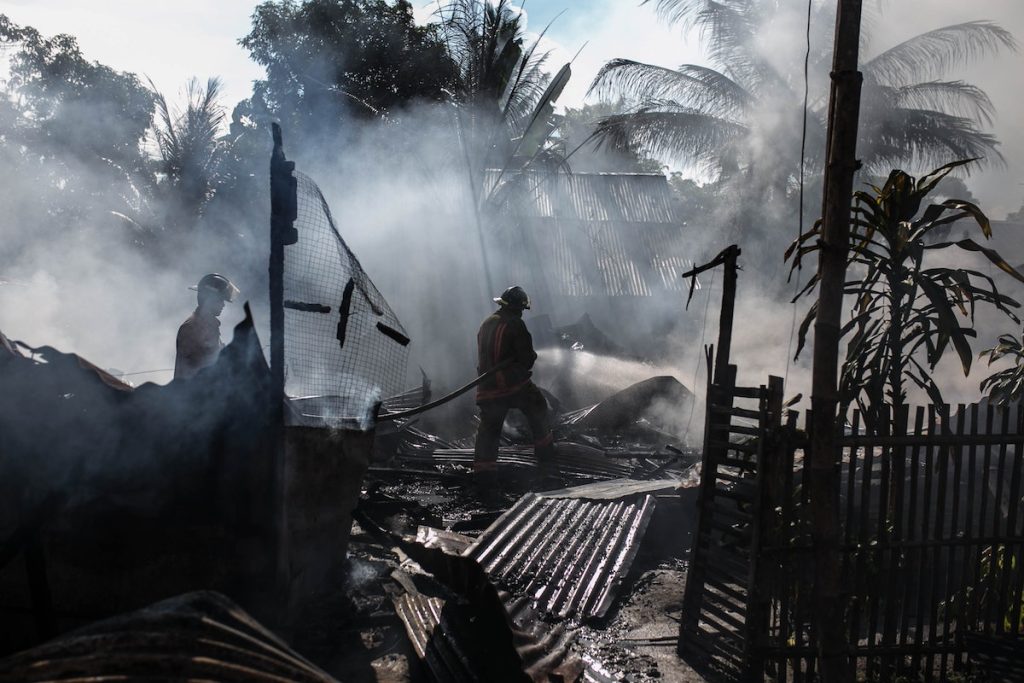- Natural disasters can cause significant damage to homes.
- Common natural disasters that damage homes are hurricanes, tornadoes, floods, and earthquakes.
- The first steps after a natural disaster are assessing the damage and contacting your insurance company.
- Securing your property and finding alternate lodging for your family if necessary is essential.
- Begin the cleanup and repair process, and prepare for future disasters by investing in protective items and creating an emergency plan.
Natural disasters can wreak havoc on your home, leaving you feeling helpless and overwhelmed. While it may be challenging to know exactly what to do when a natural disaster damages your house, there are steps you can take to protect yourself and your property. Here are some of the most important things you should do if a natural disaster damages your home.
The Impact of Natural Disasters
Natural disasters are unpredictable and can cause significant damage to homes. One moment, a property may look pristine, but the next, it can be barely recognizable. Earthquakes, hurricanes, tornadoes, and floods are natural disasters that can wreak havoc on the house.
In some cases, the structural integrity of the building may be compromised, rendering it unsafe to inhabit. Large trees, power lines, and debris can also fall onto the roof or walls, causing severe damage.
Common Natural Disasters that Damage Homes

The most common natural disasters that damage homes are hurricanes, tornadoes, floods, and earthquakes. Storms bring strong winds and heavy rains that can cause flooding and rip roofs from homes.
Tornadoes can tear through cities with powerful winds that can uproot trees, rip down power lines, and level entire neighborhoods in a matter of minutes. Floods can cause extensive water damage to homes and increase the risk of mold growth. Earthquakes can cause significant structural damage to houses, making them unstable and unsafe for habitation.
Steps You Can Take After a Natural Disaster
Once you are aware that your home has been affected by a natural disaster, there are several steps you should take to ensure you and your property are safe. Here are some of the most important things you should do:
Assess the Damage
After a natural disaster, the first thing you should do is assess the damage to your home. Take photos of any damage and document everything that has been affected. This will be useful when filing insurance claims and applying for disaster relief. Be sure to check for any structural damage that could be dangerous to you or your family.
Contact Your Insurance Company
Your insurance company should be your next port of call. Contact them as soon as possible to report the damage. Most policies have a deadline for filing claims, so acting quickly is essential. However, some insurance companies may deny claims if they believe the damage is not due to a covered peril.
In this case, speaking to a reputable insurance law firm and seeing if you can appeal the decision is a good idea. They can help you understand your coverage and ensure you receive the financial assistance you deserve.
Secure Your Property
If a natural disaster has damaged your home, you must secure it to prevent further damage or theft. This may include boarding broken windows, tarping over a damaged roof or door, and putting up a fence or other barrier to keep unauthorized people out.
In addition, you should also take steps to ensure the safety of your family. This may include finding alternate lodging or moving valuable items out of the property until it is safe to return.
Begin Cleanup and Repairs

Once you have assessed the damage, contacted your insurance company, and secured your property, it’s time to begin the cleanup and repair process. Depending on the extent of the damage, you may need to hire professionals to help you with this. If you decide to tackle the cleanup and repairs yourself, wear protective gear and take appropriate safety precautions.
Prepare for Future Disasters
Finally, it’s essential to prepare for future disasters. Consider investing in generators, storm shutters, and a sump pump. Create an emergency plan with your family so everyone knows how to react during a natural disaster. And most importantly, make sure you have adequate insurance coverage to protect yourself against future damage.
Final Thoughts
Dealing with the aftermath of a natural disaster can be overwhelming, but taking these steps can help you protect your property and get back on your feet. By assessing the damage, contacting your insurance company, securing your property, beginning cleanup and repairs, and preparing for future disasters, you can recover from a natural disaster. Remember to be patient and take things one step at a time – with time and effort, you can rebuild your home and life.
